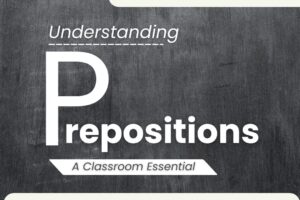
Class 10 is an important year in every student’s academic journey. It’s the year when students lay the foundation for their future by preparing for the board exams. To score well in these exams, a well-structured study routine is essential. In this blog, we will discuss the best study timetable for Class 10, covering key aspects such as study schedule, time management skills, exam preparation tips, stress management techniques, and effective learning and revision strategies.
Importance of a Study Routine for Class 10
A well-organized study routine is vital for Class 10 students because it helps maintain consistency and discipline in their studies. A structured timetable ensures that students cover all subjects and topics adequately, leaving no room for last-minute panic. Here’s how you can create an effective study timetable for class 10:
- Prioritize Subjects: Start by identifying your strengths and weaknesses in different subjects. Allocate more time to subjects you find challenging, but don’t neglect the ones you are good at. Balancing your study time is essential.
- Set Achievable Goals: Divide your study hours into manageable chunks. For instance, aim to study for 1-2 hours per subject every day. This approach prevents burnout and improves retention.
- Include Breaks: Don’t forget to schedule short breaks between study sessions. These breaks can refresh your mind and help you stay focused.
- Time Management Skills: Develop effective time management skills to make the most of your study time. Avoid procrastination and stay committed to your timetable.
CBSE Best Time Table for Class 10
The Central Board of Secondary Education (CBSE) recommends a study timetable that covers all subjects over a week. Here’s a sample timetable:
Subjects and days of the week
- Monday: Science
- Tuesday: Mathematics
- Wednesday: English
- Thursday: Social Science
- Friday: Hindi
- Saturday: Revision
- Sunday: Break
Everyday Routine
- Study Block 1 (7:30 AM – 9:30 AM)
- Study Block 2 (9:45 AM – 11:45 AM)
- Lunch Break
- Study Block 3 (1:30 PM – 3:30 PM)
- Study Block 4 (3:45 PM – 5:45 PM)
- Evening Break
- Study Block 5 (7:30 PM – 8:30 PM)
- Self-Assessment and Homework (8:45 PM – 9:45 PM)
- Night Routine and Sleep
Sunday Routine
- Catch Up on Weak Areas (7:30 AM – 10:30 AM)
- Extracurricular Activities or Interests
- Lunch Break
- Prepare for the Upcoming Week (1:30 PM – 3:30 PM)
- Relaxation, Fun, and Family Time
- Night Routine and Sleep
This timetable ensures that you give equal attention to all subjects and allocate a day for revision. You can also adjust the timetable according to your needs, preferences and study patterns.
Study Plan and Learning Strategies
Here are some valuable tips to prepare for board exams, including effective study plans and winning learning strategies:
- Active Learning: Instead of passively reading your textbooks, engage in active learning. Take notes, create flashcards, and explain concepts in your own words to enhance understanding.
- Practice Previous Year Papers: Solve previous year’s question papers to get a sense of the exam pattern and types of questions that may be asked.
- Group Study: Collaborate with classmates for group study sessions. Explaining concepts to others can enhance your understanding.
- Online Resources: Utilize online resources like educational websites, videos, and interactive quizzes to supplement your learning.
Revision Tips
- Regular Revision: Make revision an integral part of your study routine. Review your notes and practice questions regularly to reinforce your knowledge.
- Flashcards: Create flashcards for important concepts, formulas, and definitions. These are excellent tools for quick revision.
- Mock Tests: Take mock tests to simulate exam conditions and assess your preparation. It can also help you manage exam-day stress.
Stress Management Techniques
Class 10 can be a stressful year, but the following stress management tips and tricks can help you stay calm and focused:
- Exercise: Do some regular physical activity in your daily routine to reduce stress and improve concentration.
- Relaxation Techniques: Practice relaxation methods like deep breathing, meditation, or yoga to calm your mind.
- Adequate Sleep: Make sure that you get enough sleep, as it plays an important role in making your memory strong and stress reduction.
- Break Tasks into Smaller Steps: Breaking down your study goals into smaller, achievable tasks can make them less daunting and more manageable.
Conclusion
A well-structured study timetable is the key to success in Class 10. By prioritizing subjects, setting achievable goals, and following effective learning and revision strategies, you can maximize your exam preparation. Moreover, don’t forget to manage stress through regular exercise, relaxation techniques, and a healthy sleep schedule.
Class 10 is not just about taking exams; it’s also about developing lifelong learning and time management skills that will serve you well in the future. So, create your study timetable, stay disciplined, and give it your best effort. Good luck with your Class 10 board exams!








